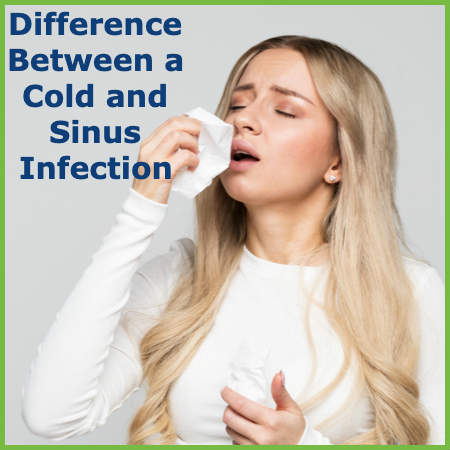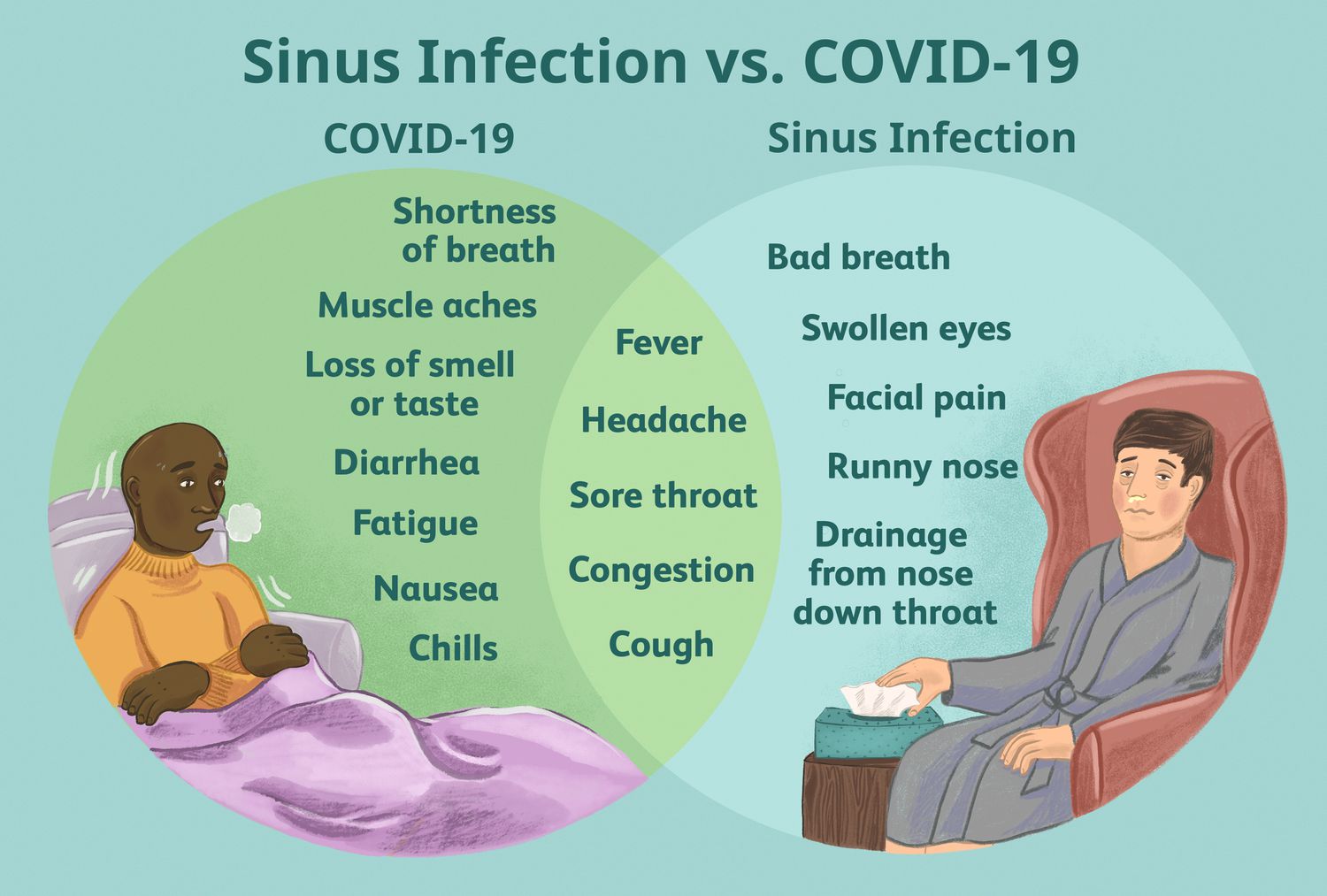Sinus infections, known medically as sinusitis, are more than just a mere nuisance; they’re a condition where the cavities around the nasal passages become inflamed and swollen. This inflammation leads to an interference with drainage and causes mucus to build up. If I’ve ever had one, I remember that feeling of pressure, the headaches, and the frustration that comes with it.
I might notice several symptoms that signal a sinus infection. These can include a stuffy or runny nose, facial pain or pressure, headache, a loss of sense of smell, cough or congestion, and in some cases, fever. These symptoms make it clear why I’d want relief, and fast.
There are various triggers for a sinus infection. It could stem from a cold, allergic rhinitis, nasal polyps, or a deviated septum. The common factor here is that any of these conditions can lead to blockage in the sinuses, setting the stage for the growth of bacteria, viruses, or even fungi. Identifying what’s causing my sinus woes is essential because it affects how I treat them.
Is It Possible to Treat a Sinus Infection in 24 Hours?
You’re dealing with a nagging face pain, pressure around the eyes, a stuffed nose, and you might feel the urge for a quick fix. The thought of shaking off a sinus infection in a day is appealing, but I must provide you with straightforward information.
While you might find anecdotes of rapid cures, medical experts typically agree that COMPLETE resolution of a sinus infection within 24 hours is unlikely. It takes time for your body to fight off the infection and for inflammation to subside.
That said, don’t lose hope. You CAN make significant strides towards feeling better within that first day. The key is to start treatment as soon as symptoms appear and to take comprehensive steps to support your body’s natural healing processes.
It’s essential to manage expectations. The goal within this short time frame is to reduce discomfort and symptoms rather than expect a full cure. So, what actions can you take to begin this process and what might those first steps include? The next section offers some practical at-home remedies that you can implement immediately.
Immediate Relief Techniques: At-Home Remedies
When you’re feeling the pressure of a sinus infection, immediate relief can’t come soon enough. I understand how that nagging pain and congestion can throw off your entire day. Let me share some personal strategies that can help ease those symptoms quickly, right in the comfort of your home.

Staying well-hydrated is more than just good for general health; it can be a game-changer for sinus infections. Drinking plenty of fluids helps thin the mucus, making it easier for your body to clear it out. Water is your best friend here, but warm teas can also be soothing. And while we’re on the topic of warmth, a warm compress might feel like a hug for your face. Apply it to your sinus areas to help reduce pain and congestion.
Now, don’t underestimate the power of steam – it’s like a spa treatment for your sinuses. Taking a hot shower or inhaling steam from a bowl of hot water can loosen up the mucus. Remember, it’s not just about relief; it’s about creating an environment where your sinuses can start to heal.
These methods may not clear up an infection in a day, but they’re practical steps toward feeling better. And believe me, when you’re under the weather, any improvement is a win. Just keep in mind, these are temporary solutions. If symptoms persist, you’ll want to explore further treatment options.
Over-the-Counter Solutions: What Works?
When you wake up with the telltale pressure in your face and a stuffed nose, finding quick relief is a top priority. While the body often needs more than 24 hours to fully overcome a sinus infection, certain over-the-counter (OTC) solutions can help ease your symptoms.
The aisles of your local pharmacy are lined with various medications that promise relief. When choosing an OTC medication, focus on ones specifically designed for sinus infection symptoms. Decongestants like pseudoephedrine can shrink swollen nasal passages, and antihistamines are beneficial if allergies are part of the problem.
Nasal sprays come in two main types: decongestant sprays and saline sprays. Decongestant sprays offer quick relief but should not be used for more than a few days consecutively. On the other hand, saline sprays are gentler and can be used as often as needed. They work by thinning the mucus, which can promote drainage and reduce congestion.
Effectiveness also depends on proper usage. Always read the labels and use medications as directed. Pay special attention to any warnings about drug interactions, especially if you’re already taking other prescriptions or supplements.
One often-forgotten tip is to listen to your body. If you notice side effects or if the medications don’t seem to be helping after a couple of days, it’s best to REGROUP and CONSIDER your options.
While OTC solutions are generally safe when used correctly, they aren’t a cure-all. If your symptoms persist and you see no improvement, this might mean it’s time to consult a health professional. Remember, the goal is not just to suppress symptoms, but to heal.
When to Seek Professional Medical Advice
A lingering question you might face during a sinus infection is whether you need to see a doctor. It’s essential to know when home remedies are no longer sufficient and professional advice is necessary.
Look out for symptoms that intensify or fail to improve. This could include severe pain around your sinuses, a persistent fever, or a sinus headache that won’t ease up. If you experience these signs, it’s an indication to consult a healthcare provider.
Sinus infections usually have straightforward symptoms, but when they’re coupled with factors like a high fever or noticeable swelling, you might be dealing with something more severe. These symptoms necessitate a visit to your doctor, who can make an accurate diagnosis through a physical examination or imaging tests like a CT scan, if needed.
Aside from alleviating discomfort, getting prompt medical treatment can prevent complications. Sinus infections can occasionally lead to more serious conditions if left unchecked, including chronic sinusitis or the spread of infection.
Your doctor might prescribe antibiotics if your sinus infection is bacterial. They may also recommend corticosteroids to reduce inflammation or suggest other treatments that align better with your specific situation.
Remember, a rapid recovery often hinges on a precise understanding of your infection and the appropriate treatment. Your healthcare professional can provide this clarity and ensure you return to full health safely and efficiently.
Prevention and Long-Term Management of Sinus Health
After weathering the storm of a sinus infection, it’s only natural to wonder how to prevent future occurrences. The beauty of prevention lies in its simplicity.
First and foremost, maintaining a robust immune system is your front-line defense. This means prioritizing a well-balanced diet, getting regular exercise, and ensuring adequate sleep.
Beyond personal health, environmental factors play a critical role. Keep your living space free of allergens that can trigger sinus issues, and consider using an air purifier to maintain air quality.
Stay hydrated. Drinking plenty of fluids helps keep mucus thin and flowing, subsequently reducing the chances of blockages that can lead to sinus infections.
Finally, don’t underestimate the power of good hygiene. Regular hand washing, avoiding touching your face, and steering clear of sick contacts can go a long way in keeping your sinuses clear.
